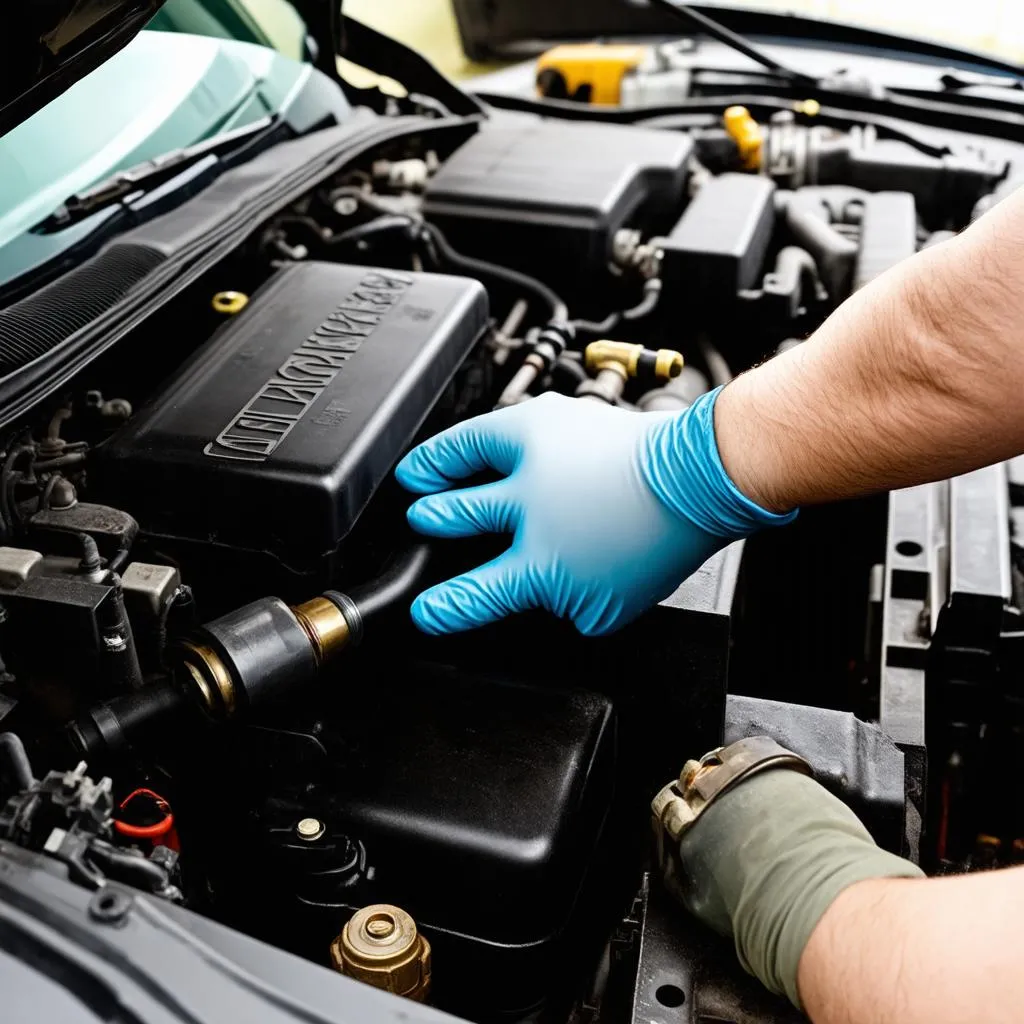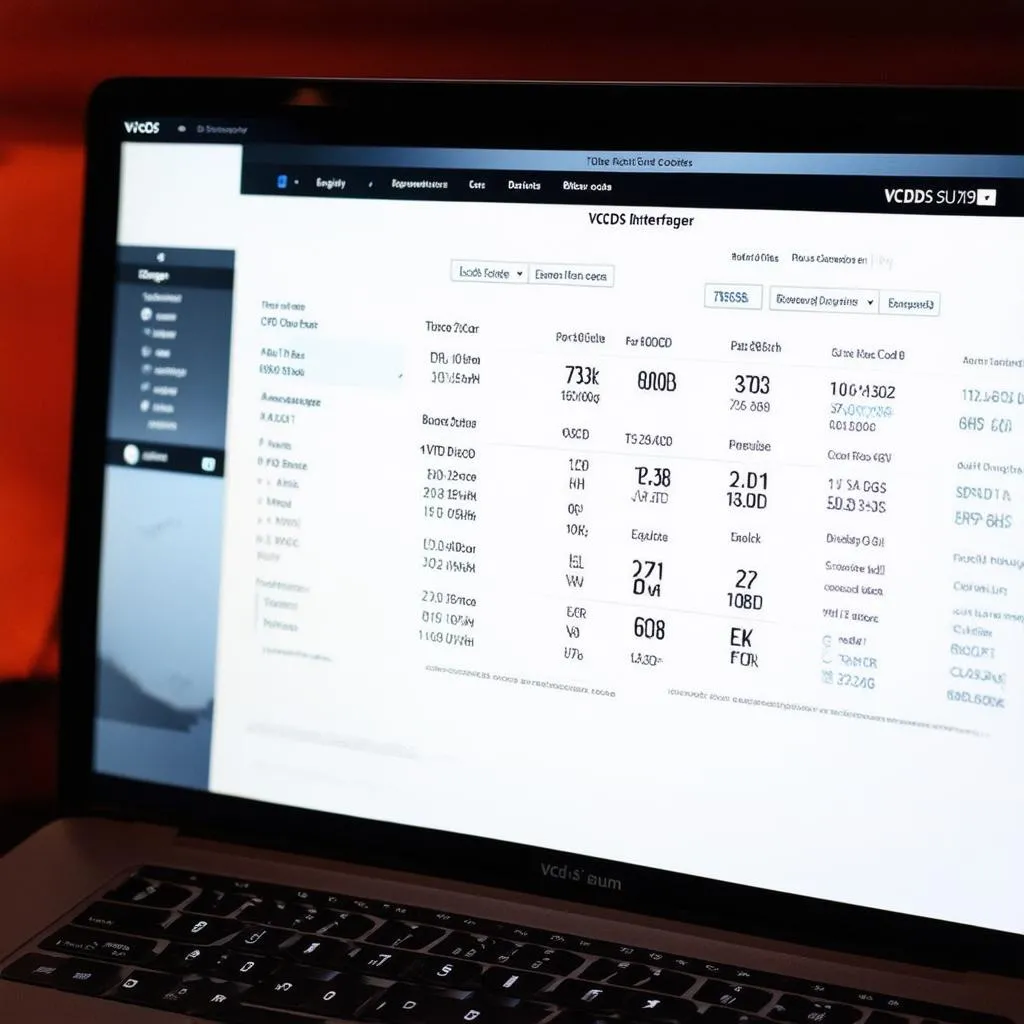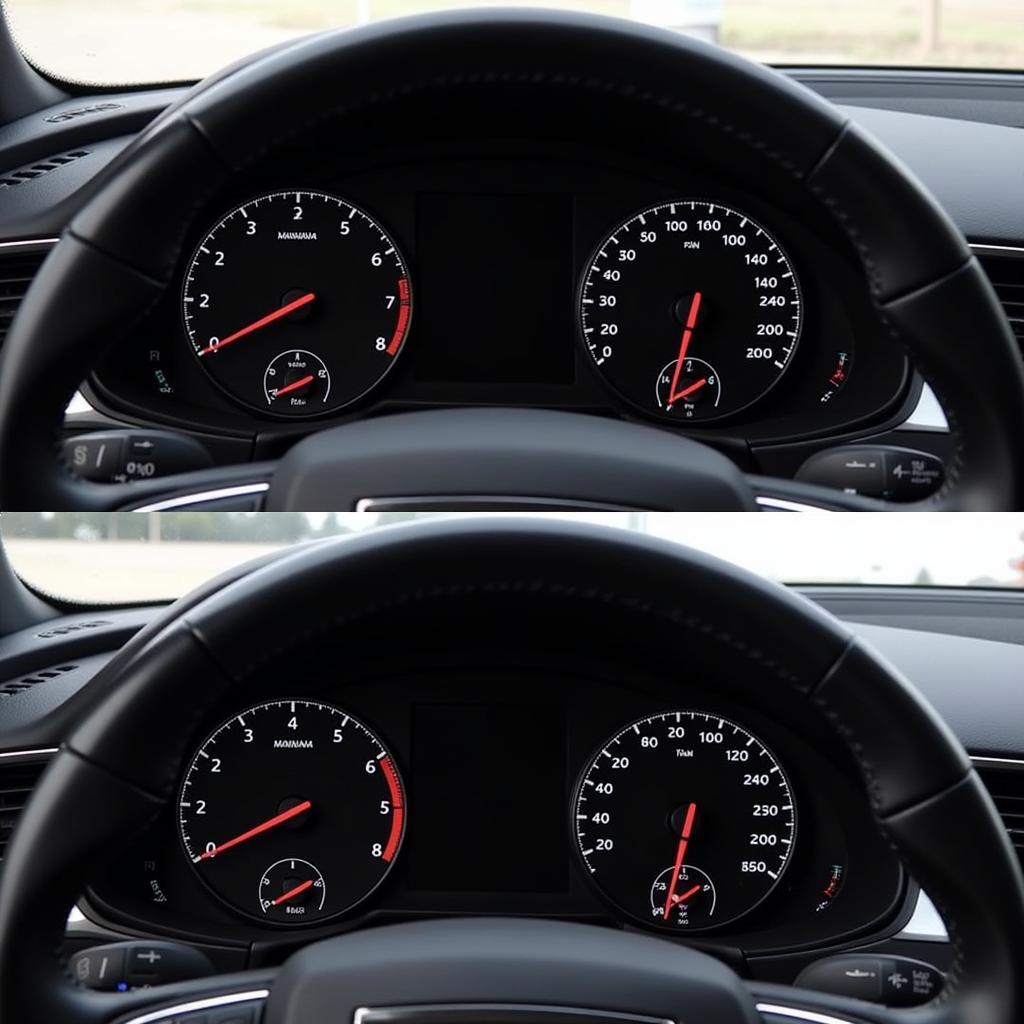The 3.0 TDI engine, renowned for its performance and efficiency, utilizes a Diesel Exhaust Fluid (DEF) system to meet stringent emission standards. A crucial component of this system is the DEF pump, responsible for injecting the fluid into the exhaust stream. In this article, we delve into the 3.0 TDI DEF pump cycle, its significance, and how you can use VCDS, a powerful diagnostic tool, to monitor and troubleshoot potential issues.
What is the DEF Pump Cycle and Why is it Important?
The DEF pump cycle refers to the process of drawing DEF fluid from the tank and delivering it to the injector. This process is precisely controlled by the Engine Control Module (ECM) to ensure the optimal amount of DEF is injected based on engine load and exhaust temperature. A properly functioning DEF pump cycle is essential for:
- Emissions Control: DEF, also known as AdBlue, helps reduce harmful nitrogen oxides (NOx) emissions by converting them into harmless nitrogen and water vapor.
- Engine Performance: A malfunctioning DEF system can trigger limp mode, severely limiting engine power to protect the catalytic converter.
- Legal Compliance: Vehicles with faulty DEF systems may fail emissions tests and be deemed illegal to operate in many jurisdictions.
Using VCDS to Diagnose 3.0 TDI DEF Pump Cycle Issues
VCDS (Vag-Com System) is an invaluable tool for diagnosing issues with your 3.0 TDI engine, including those related to the DEF system. Here’s how you can use it to gain insights into the DEF pump cycle:
- Connect VCDS to Your Vehicle: Ensure your laptop and VCDS software are properly set up, then connect the interface to your vehicle’s OBD-II port.
- Access Engine Control Module: Navigate to the “Select Control Module” section within VCDS and choose “Engine.”
- Monitor Live Data: Go to “Measuring Blocks” and select the relevant measuring block groups for the DEF system. This will allow you to monitor live data such as:
- DEF pump duty cycle
- DEF pressure
- DEF injector quantity
- DEF tank level
- Fault codes related to the DEF system
Common 3.0 TDI DEF Pump Cycle Issues and Troubleshooting
- Low DEF Fluid Warning: This is the most common issue, often easily resolved by refilling the DEF tank. Ensure you’re using DEF that meets the required specifications.
- DEF Pump Failure: Symptoms include persistent DEF warnings despite a full tank, poor engine performance, and increased emissions. VCDS can help confirm pump failure by showing a lack of pressure or an erratic duty cycle. Replacing the pump is typically the solution.
- DEF Injector Issues: A clogged or malfunctioning injector can disrupt the DEF cycle. VCDS can identify problems with injector operation. Cleaning or replacing the injector might be necessary.
- DEF System Sensor Faults: Malfunctioning sensors can provide inaccurate data to the ECM, leading to DEF system issues. VCDS can help pinpoint faulty sensors, which will need replacement.
 DEF Pump Replacement
DEF Pump Replacement
FAQs about 3.0 TDI DEF Pump Cycle and VCDS
Q: Can I drive my 3.0 TDI with a DEF system fault?
While you might be able to drive for a short distance, it’s strongly advised against it. Continuing to drive with a DEF system fault can lead to further damage and costly repairs.
Q: How often should I refill my DEF tank?
DEF consumption varies depending on driving conditions and engine load. As a general guideline, expect to refill your DEF tank every 5,000 to 10,000 miles.
Q: Can I perform DEF system repairs myself using VCDS?
While VCDS is an excellent diagnostic tool, DEF system repairs often require specialized knowledge and tools. If you’re not comfortable working on your vehicle’s emissions system, it’s best to consult a qualified mechanic.
 VCDS Diagnostic Screen
VCDS Diagnostic Screen
Important Notes on 3.0 TDI DEF Systems
- Use Only High-Quality DEF: Low-quality or contaminated DEF can damage the system. Always use DEF that meets the ISO 22241 standard.
- Don’t Overfill the DEF Tank: Overfilling can damage the tank and other components. Refer to your owner’s manual for the correct filling procedure.
- Regular Maintenance is Key: Like any other system in your vehicle, the DEF system benefits from regular maintenance. This includes checking fluid levels, inspecting components for leaks, and addressing warning lights promptly.
Need Expert Help with Your 3.0 TDI DEF System?
At Cardiagtech, we understand the intricacies of modern diesel engines and their emission control systems. If you’re experiencing issues with your 3.0 TDI DEF pump cycle or need assistance with VCDS diagnostics, our team of experts is here to help.
Contact CARDIAGTECH today for reliable diagnostics, quality parts, and expert advice to keep your 3.0 TDI running smoothly and efficiently.


